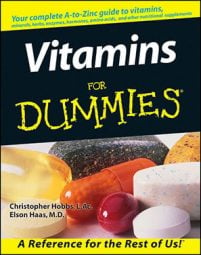Potassium is an essential nutrient contained mainly within cells. You need at least 2 grams (or 2,000 mg) of potassium a day, which is fairly easy to obtain from your diet. Potassium helps to balance and interact with sodium in controlling blood pressure and supporting electrical impulses across cell membranes. It’s also a major player in your body’s utilization of energy.
The key functions of potassium include:
Regulates water and acid-base balance in your body.
Supports the electrical energy action generated by the sodium and potassium “pumping” movement of electrons across cell membranes.
Doses of potassium are
Prescribed medically when people take diuretics for high blood pressure or water swelling.
Used as a nutritional supplement in lower amounts for balancing sodium.
Used for muscle cramps and twitches and for reducing the risk of heart disease.
Potassium is best obtained from fruits and vegetables, such as leafy greens, potatoes, citrus, and bananas, as well as from whole grains, wheat germ, nuts, and seeds.
Toxicity can result from improper kidney function and can be serious. Deficiency is more common and can cause fatigue, elevated blood pressure, and abnormal muscle contractions. Deficiency can occur quite easily if you have persistent diarrhea, or if you consume excessive amounts of salt.

